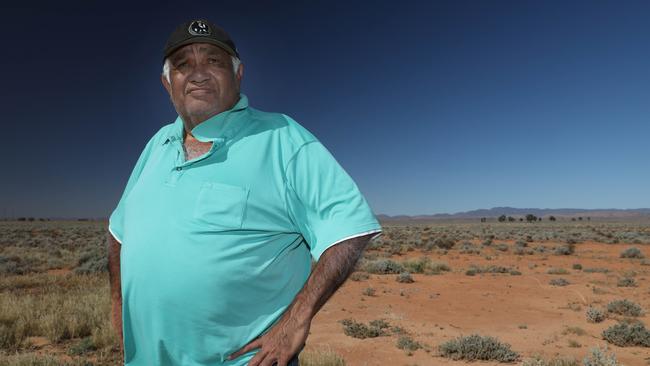
March 28 was also the day Prime Minister Anthony Albanese called the federal election. The SA Supreme Court the same day ruled in favour of three claimants from the Adnyamathanha tribe in a long-running uranium royalties case that may involve as much as $60m potentially withheld from legal beneficiaries.
Most political commentators see the loss of Albanese’s voice referendum, rejected by 60 per cent of voters nationally in October 2023, as the beginning of Labor’s long polling downturn.
Yet South Australia has a voice to parliament and a Labor Premier, Peter Malinauskas, who was also a strong supporter of the national voice and introduced the SA voice. That SA voice includes members of the Coulthard family.
The five-year legal action fought by members of the Adnyamathanha Traditional Lands Association was blocked at every turn by a company called Rangelea, which is run by Vince Coulthard, former chief executive of ATLA.
In 2023, the Federal Court dismissed an appeal by Rangelea against a decision by Chief Justice Chris Kourakis that the ATLA members who brought the case against Rangelea be given full access to its financial documents.
News Corp journalist Cameron England reported on March 27 that more than $20m is now sitting in trust with the court, money paid by Rangelea associates Heathgate Resources and Quasar Resources since 2023. Rangelea was the vehicle to distribute royalties to ATLA members via the Adnyamathanha Master Trust.
Some ATLA native title holders have told this column they believe as much as $100m in royalties from the uranium mine at Beverley, in the northern Flinders Ranges, is unaccounted for. This column first looked at the issue in August 2020.
ATLA elder Tiger McKenzie, 72, whose cousin, Ivan, was one of three claimants in the Rangelea case, welcomed the Supreme Court decision. The court concluded “it is clearly in the interests of Adnyamathanha people, particularly the traditional owners and common law holders” that money flows be open to review.
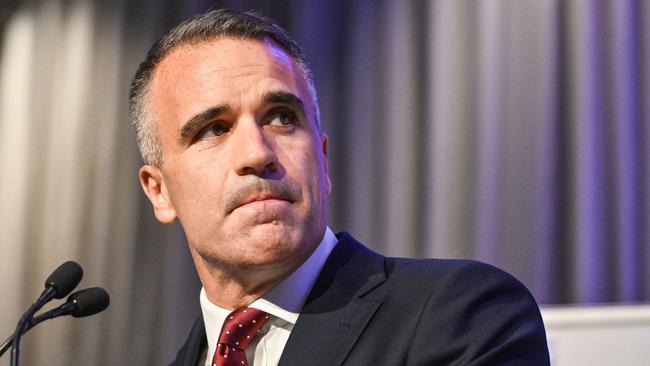
Said McKenzie last week: “I want to see in the future mining royalties being used in the right way to get outcomes. I want to see more opportunity for Adnyamathanha people to create businesses and jobs.”
A strong supporter of native title, long-time Labor voter and backer of the federal voice proposal, McKenzie has written to Malinauskas and SA Attorney-General Kyam Maher but has never received a response. He is disappointed neither Albanese nor Malinauskas seem interested in finding out what Aboriginal people outside capital cities want.
McKenzie says conditions in Port Augusta, where many Adnyamathanha live, are just as bad as in Alice Springs, and he hates seeing young people going off the rails.
“There’s about four native title groups in the area. Imagine if we got together and set up business and created jobs … we’d be pretty strong people,” he says.
“But politicians and bureaucrats don’t come out here and talk to Aboriginal people. They sit down in Canberra and impose things.”
Mark Koolmatrie, a Coorong man, blames the rise in native title problems on what he calls “big beards”.
Koolmatrie runs the National Tourism Award-winning Kool Tours in the Coorong.
He is thrilled at the Rangelea decision but said “a part of me is sad that we have to go to court to look at our own communities’ books”.
The problem, he says, is the power of individual families who hold negotiating sway with governments, mining companies and bureaucrats.
“These family dynasties, when government is looking to fund a community, they’re actually funding these individual families. When governments or mining companies fund these families they are not supporting the wider community,” Koolmatrie says.
“What is happening despite changes of government here and in Canberra, and the voice in SA and the federal referendum, is we are seeing a whole new stolen generation – people entitled to native title royalties who get next to nothing.”
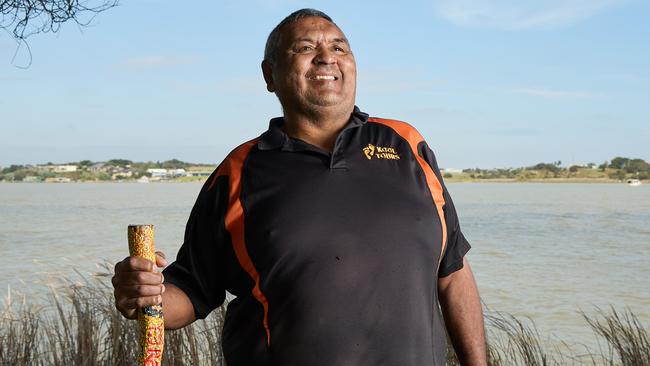
Koolmatrie was critical that some people had been elected to the SA voice with “only nine or 10 people voting for them”.
“The problem with the voice here and the low numbers of people who turned out to vote on it is that it is just an advisory body,” he says.
“The government can ignore them but then say they have been negotiating with Aboriginal people through the voice.”
He says the whole idea of the “big beards” who control much of Aboriginal Australia is just white prejudice.
“When I grew up, Aboriginal society was not dominated by powerful family barracking. Now it’s about a battle between the haves and the have-nots. And the have-nots are the new stolen generation.”
Tim Agius, chair of the Kowalick Aboriginal Institute, says the dismissal of the Rangelea appeal “is an example for the rest of the native title body groups to consider”.
“A number of groups across South Australia talk to me about similar problems,” he says.
According to Agius, ORIC (Office of the Registrar of Indigenous Corporations), the regulator of native title, has too few resources to oversee the country’s 3259 native title bodies.
He says state and federal governments need to work hard to improve the standards of governance applied to Native Title board appointments.
Agius says this fed into problems created by lawyers. “When traditional owners find themselves debating with lawyers representing powerful interests, they are way out of their depth. As soon as the lawyers speak everyone goes to water.”
Vince Coulthard takes a different view of ORIC and governance.
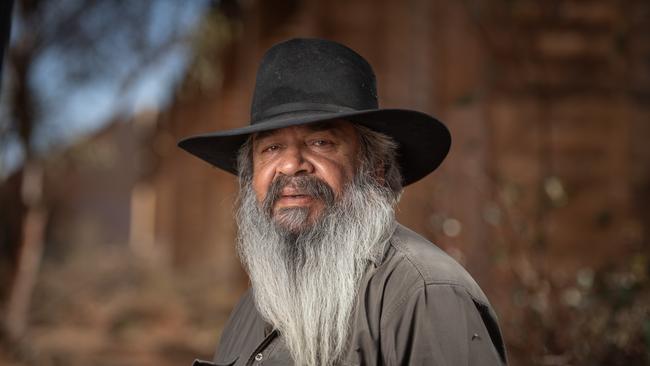
Regarding Rangelea’s 2023 court loss, he says: “I don’t know why people are so interested in how traditional owners spend their money. ORIC is trying to dictate. They’re trying to become the protector of Aborigines. Those days are gone.”
Michael Pagsanjan, principal of Adelaide law firm MPS Law, says the Rangelea decision “re-enforces the principle that native title holders are entitled to information about their native title trusts. The trustees … owe strict fiduciary duties to the beneficiaries.”
Pagsanjan points to “an inherent tension between the reliance on native title trusts and … self-determination”.
While native title trusts should protect assets for beneficiaries, they “limit the power of … communities to make commercial decisions to advance” their people.
No referendum is needed to fix this issue, which could involve billions of dollars nationally. A bit of political will by federal and state Labor would do it.
More old-fashioned journalism in the Aboriginal world would help. That means news organisations getting out of the Sydney-Melbourne-Canberra Aboriginal rights bubble and into remote community life.


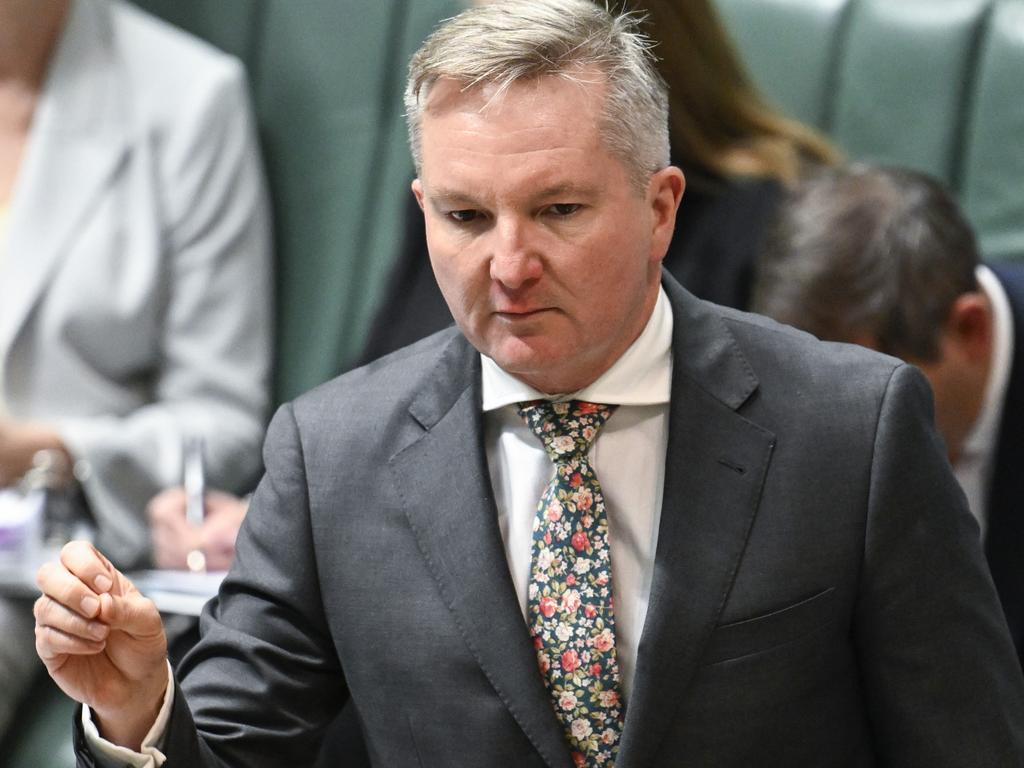

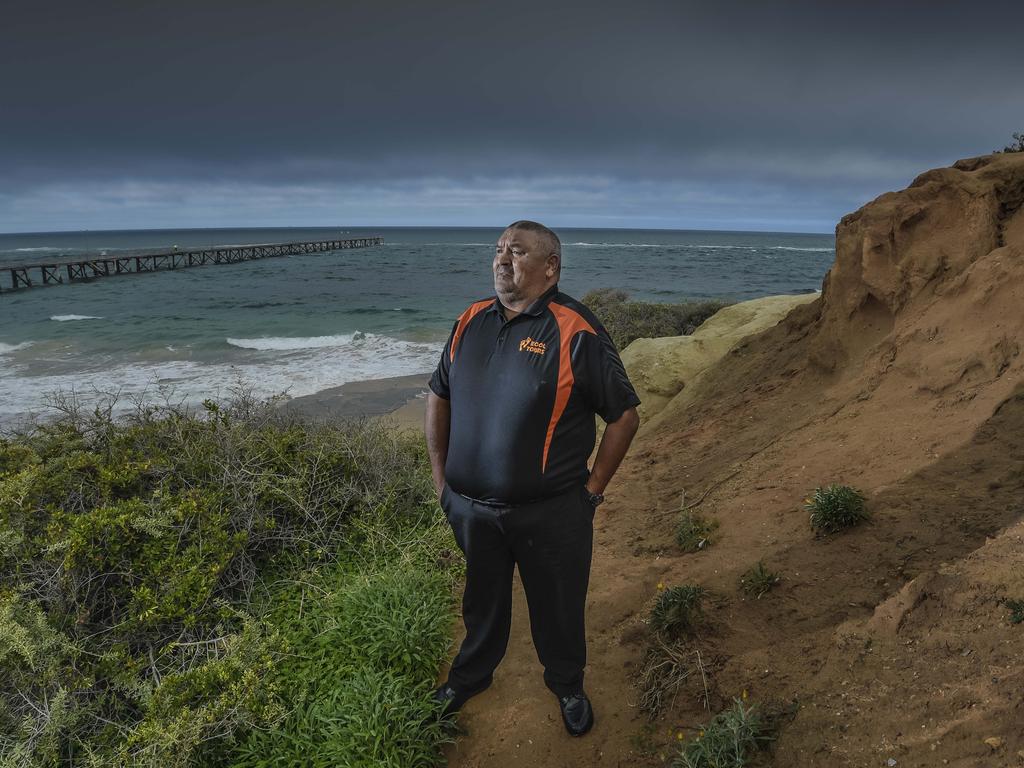


An Adelaide court decision on March 28 that favoured South Australian native title holders points to what was missing from the voice referendum debate and how powerful corporate and political interests deal with disadvantaged Aboriginal people.